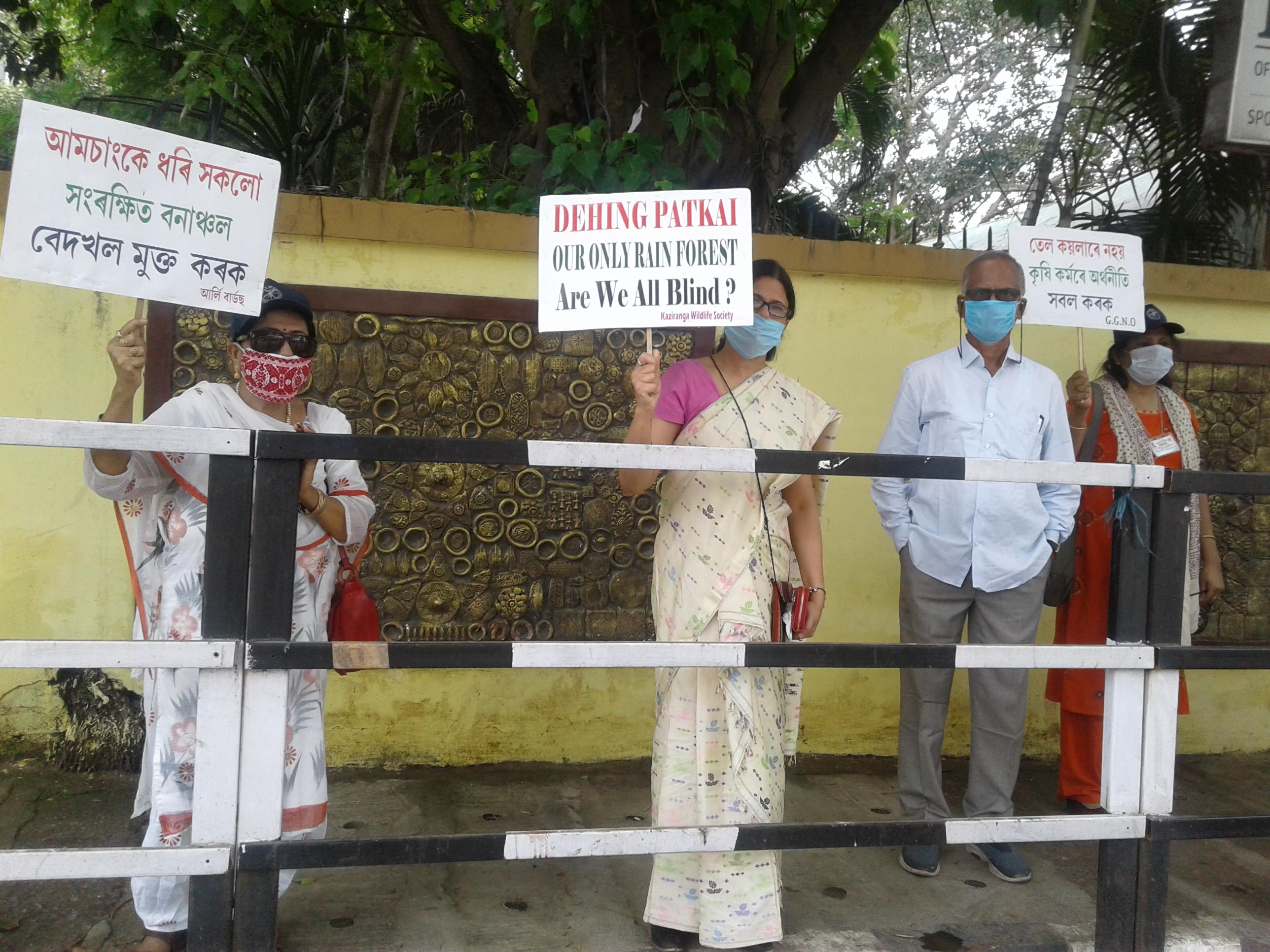The relevance of celebrating World Environment Day has become more significant owing to a world-wide Pandemic. However, in Assam, the underlying objective behind celebration of this Day seemed to have lost its relevance. Without proper conservation of forests, simply growing trees cannot be a substitute for altering shared habitats. Forests perform critical ecological functions. In a largely agricultural state like Assam, policy makers often forget the shared inter linkages between forestry and agriculture, stated a press release issued by Kaziranga Wildlife Society, the oldest conservation NGO of the state.
“Shrinking of dense forest cover has led to the crisis of wildlife management in the state. Protected areas that include the national parks and wildlife sanctuaries and reserve forests (RF) have suffered extensively over the years because of organized encroachments, diversion of forest land to infrastructure projects, coal mining, logging and development projects. Converting chunks of natural forests into monoculture industrial plantations already devastated local ecosystems, said Mubina Akhtar, secretary Kaziranga Wildlife Society. While RFs constitute 66.58 per cent of the State’s total classified forest cover, un-classed forests constitute 33.42 per cent of the state’s total forest area. Unfortunately, a staggering 3,396 sq km of the 300 plus RFs across the State is under encroachment officially.
“The proposal for use of 98.59 hectares of land from the Saleki Proposed Reserve Forest (PRF) for a coal mining project by North-Eastern Coal Field (NECF), a unit of Coal India Limited recommended by NBWL’s Standing Committee during the lockdown period is simply atrocious,” said Akhtar. “The open cast coal mining project at Saleki includes almost 100 hectares of forestland in the Dehing Patkai Elephant Reserve (DPER) which lies under the Eastern Himalaya and the Indo-Burma global biodiversity hotspots. Home to more than 50 mammal species that include the Western Hoolock Gibbon, the landscape is also known to have the highest diversity of wild cats found in any place in the world—from the Royal Bengal Tiger to the Asian golden cat. About 350 bird species found here include 12 bird species like the White-winged Wood Duck and the Chestnut-backed Laughingthrush that are of High Conservation Concern according to State of India’s Birds 2020. More than 300 butterfly species, 70 species of reptiles and amphibians are also housed by the DPER. The fragmentation and loss of natural habitats are major drivers of ecosystem degradation and biodiversity loss globally. Mega-herbivores such as elephants, with large home range and food requirements, have been among species most affected by habitat alteration and loss of habitat connectivity,” she added.
An accident in an oil well operated by Oil India Limited (OIL) in the Baghjan area in Tinsukia district on May 27 has brought irreversible damage to two richest bio-diverse areas of northeastern India-- the Dibru-Saikhowa National Park, also a biosphere reserve and the Maguri-Motapung Beel—one of the most important wetlands in the region. The blast led to an uncontrolled release of crude oil and natural gas as the well’s pressure control systems failed.
This lack of preparedness on part of the operating agencies has led to widespread pollution with the spilled over oil forming a thick toxic layer over croplands, fisheries, tea plantations and forests. Air, water and soil have become equally polluted. This disaster happened amidst a raging controversy following environmental clearance to Oil India Limited by the Union Ministry of Environment, Forest and Climate Change for drilling and hydrocarbon testing at seven locations inside Dibru-Saikhowa National Park.
Kaziranga Wildlife Society while demanding adequate compensation to the victims also sought an inquiry into the whole incident.
Kaziranga Wildlife Society also joined a symbolic protest to highlight the prevailing state of affairs in the management of forest and wildlife in the state on the occasion of World Environment Day in front of the Guwahati Press Club on Friday with Early Birds, Aranya Suraksha Samity and Green Guard Nature Organization.
- 8041 reads










Add new comment